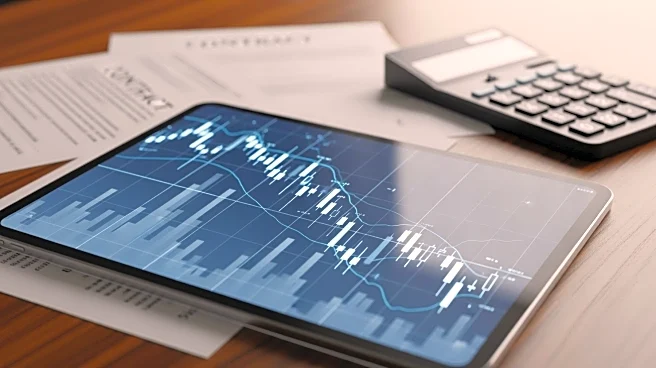What's Happening?
Gen Z employees are increasingly using TikTok to document their daily work lives, turning mundane office activities into viral content. This trend, known as 'day in my life' (DIML) videos, showcases typical workday routines such as meetings and lunch breaks, attracting significant online attention. Many Gen Zers are leveraging these videos to supplement their income through brand partnerships, reflecting their inclination towards side hustles. A Glassdoor-Harris poll from 2024 indicates that 57% of Gen Z employees have a side hustle, compared to 39% of the general workforce. This generation is embracing 'career minimalism,' prioritizing work-life balance over traditional career advancement.
Why It's Important?
The rise of DIML videos among Gen Z workers highlights a shift in workplace culture and economic behavior. As wages stagnate and job markets tighten, younger employees are seeking alternative income streams and redefining career success. This trend could influence corporate policies, as companies may need to adapt to the changing priorities of their workforce. Additionally, the popularity of these videos underscores the growing importance of social media as a platform for personal branding and income generation. Employers may face challenges in managing confidentiality and security as employees increasingly share workplace content online.
What's Next?
Employers may need to revise their social media policies to address potential security risks associated with workplace content sharing. As Gen Z continues to prioritize side hustles and career minimalism, companies might explore new strategies to engage and retain talent, such as offering flexible work arrangements or supporting entrepreneurial endeavors. The trend could also lead to increased scrutiny of social media practices, prompting discussions on privacy and professional boundaries in the digital age.
Beyond the Headlines
The trend of Gen Z workers using TikTok for DIML videos raises ethical and legal questions about privacy and workplace conduct. Recording and sharing workplace activities could breach confidentiality agreements, leading to potential legal repercussions. This development may prompt broader discussions on the balance between personal expression and professional responsibilities, as well as the evolving nature of work in the digital era.









